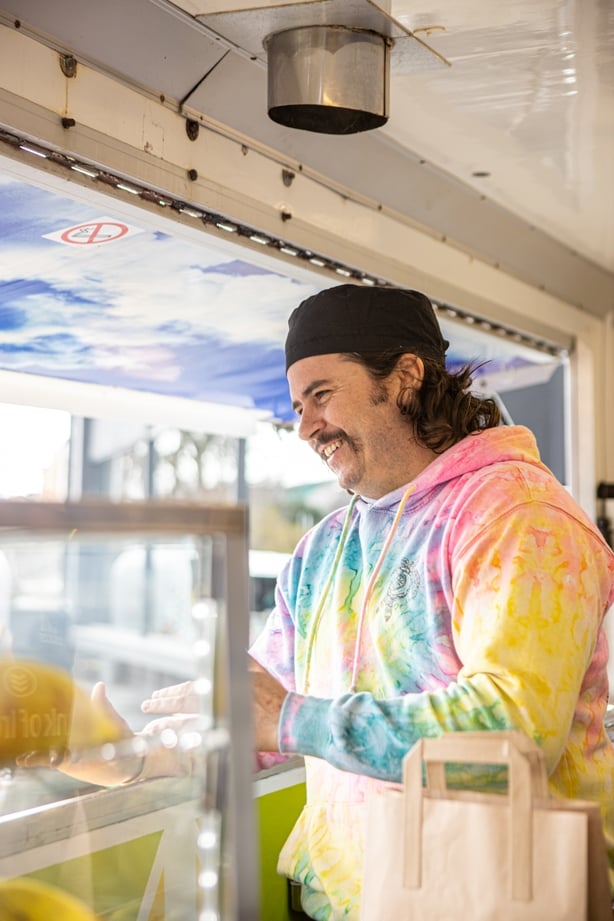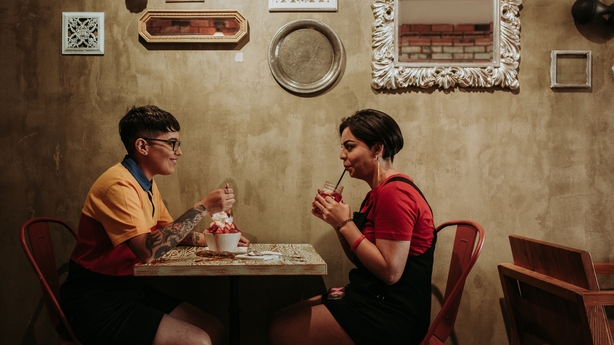Food and travel content creator Éadaoin Fitzmaurice speaks to restaurant owner Eamon De Freitas of AA's Caribbean about why so many restaurants are closing in Ireland, and what we can do to help.
It's no secret that the restaurant industry in Ireland is facing a particularly challenging time. As a foodie, there’s a pang in my heart each time I open my phone to see restaurant after restaurant - some that have been running for generations, some only a couple of months old - making the difficult decision to close their doors.
After the years of the Covid-19 pandemic, when customers came out in their droves to support local cafés, producers, bars and restaurant amid unprecedented financial obstacles, the communities that flourished have come under yet more financial strain due to the cost-of-living crisis, among other factors.

As a food blogger, I hop from restaurant to restaurant, creating food-based content every day, so I hear from chefs and restaurateurs that the rise in the cost of living, rent, staffing and VAT is making it nearly impossible to sustain a business.
It's a particularly hard pill to swallow, given how many new and ambitious restaurants are opening, enhancing Ireland's reputation as a foodie destination.
What has happened in recent years to make the industry simultaneously the most dynamic and exciting it's ever been, and yet increasingly unstable? What can we, as customers and food lovers, do to support it?
Eamon De Freitas, owner of Trinidadian restaurant AA's Caribbean, has seen some of these tide shifts in the industry in real time, and often speaks about the challenges restaurant owners face on their Instagram page.
AA’s Carribean started as a food truck before finding a residency at Bow Lane. It’s been a journey with as many ups as downs, and the business has now moved from general service to a catering and condiment model to keep up with current industry pressures.

"We can all see by these closures that are happening that the restaurant scene in Dublin is in dire straits and there’s a few reasons for that," Eamon tells me.
Eating out and ordering in in Ireland has changed massively in recent decades. Eamon spoke to me about how the popularity of food delivery services has changed consumer habits, with fewer people able to spend money on a casual meal out.
"The idea of someone who goes out once a week, or once a month is really dying," he continues.
Does ordering your food from a restaurant instead of dining in their brick-and-mortar premises have that much impact? Probably more than most of us realise.
"The problem with delivery is that the restaurants don’t really make any profit because the delivery service companies charge restaurants around 30%. If you’re already doing well, it’s a nice little bump but you definitely couldn’t survive off it."
In 2024, the Central Statics Office found that from 2016 to 2023 the price of butter on index went up by 40%, and dairy went up by 35%. However, Eamon makes the point that the price of a dish in a restaurant has only gone up maybe 10-20%, so it hasn’t kept pace with the rising global costs of ingredients, staffing and rent and VAT.
"Consumers need a shake, rattle and roll on how much things actually cost. We’re probably in the last era of things being cheap and things will change."
Irish business owners pay 23% VAT, while in London it’s 20%. "If the VAT rate came down it would give businesses breathing room", Eamon remarked, but suggested alternatively that there could be a "means or profit-based taxation".
"Companies that have billions of dollars to build a hotel or whatever, I don’t understand how they are charged the same amount as companies who are starting out with three employees, creating excellent food, service and experiences."
In Eamon's view, takeaways such as chippers will endure through tough times as they have low production costs and a high volume of orders. Fine dining, he believes, will also remain, as these types of restaurants are called upon to celebrate life’s special occasions.
The restaurants somewhere in between, he says, are the ones that will suffer: "There is an erosion of independent, middle-of-the-road restaurants that make up the culture of a city."
"Ireland is incredible if you want to start a business, so long as you’re exporting," he adds. "The Local Enterprise supplies immense support".
Unfortunately, he believes there are fewer resources and support available for restaurants. As a result, there are very few street food vendors left in Dublin. From his experience setting up a business through a food truck, "you have to hope someone who owns private land will let you sit there for a while, before something like an apartment block is built there. "

So what can the general public do to save their favourite restaurant from closing?
"It’s one of the last few luxuries that everybody can afford. Independent restaurant owners love people, they love serving people, they want you to have a good time and forget about life’s problems. So please, help them from closing down."
Maybe it's time to meet that friend you have been meaning to catch up with, or book that restaurant you have saved on Instagram? Let’s keep our buzzing food culture alive.
The views expressed here are those of the author and do not represent or reflect the views of RTÉ.

